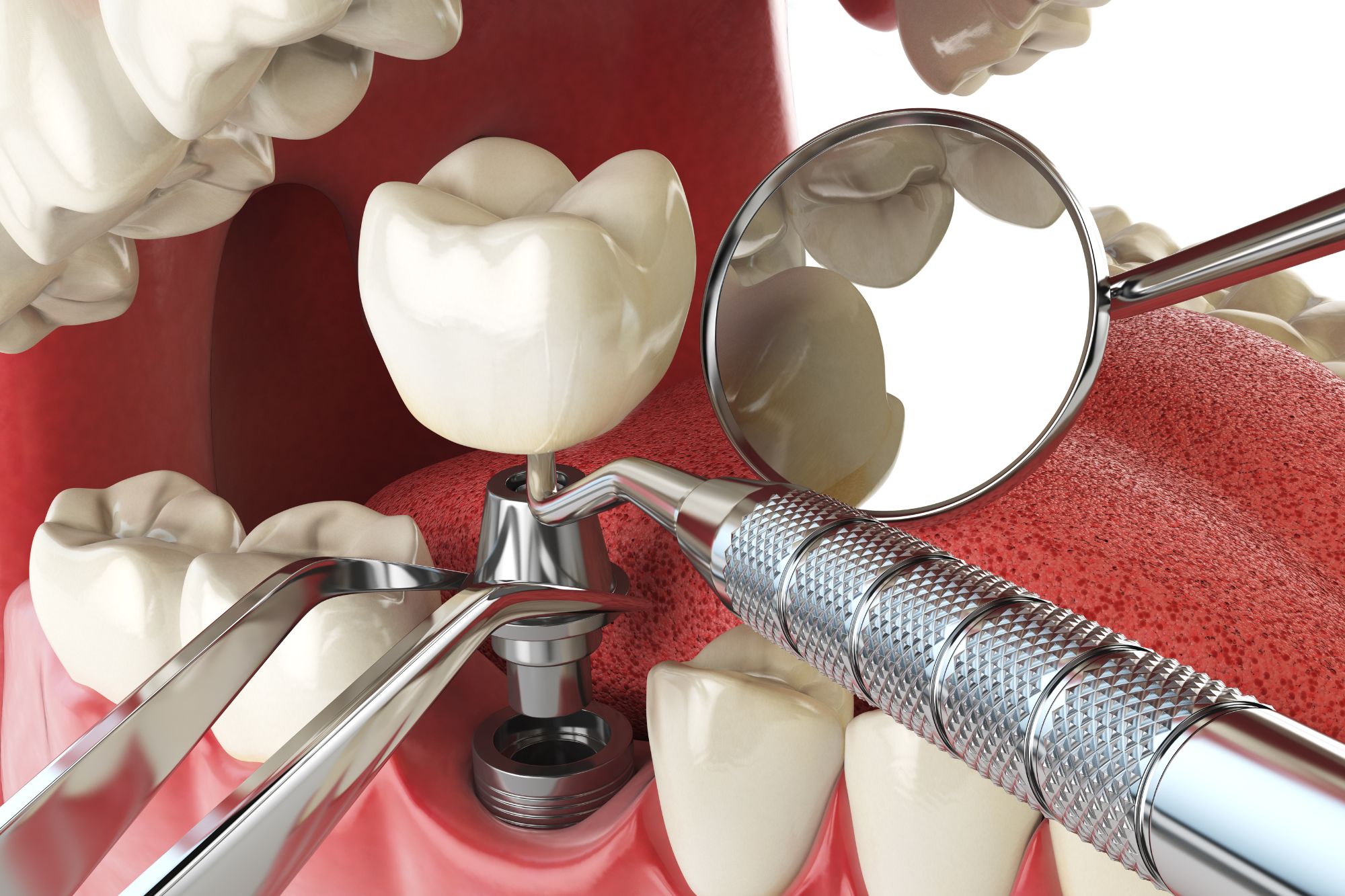Dental implants have revolutionized the world of dentistry, offering a permanent solution to replace missing teeth. They provide a stable, long-lasting foundation for artificial teeth and restore function and aesthetics to a patient's smile. There are several types of dental implants, each designed to address specific needs and preferences. This article will discuss various types of dental implants, their features, and the factors that may influence their suitability for different patients.
1.Endosteal ImplantsEndosteal implants are the most common type of dental implant. They are typically made of titanium and are placed directly into the jawbone to serve as an artificial tooth root. Endosteal implants are available in various shapes, including screw, cylinder, and blade, depending on the patient's bone structure and the dentist's preference.
After the initial implant surgery, the jawbone fuses with the implant through a process called osseointegration. Once healing and osseointegration are complete, a second surgery is performed to attach an abutment to the implant. Finally, a custom-made crown, bridge, or denture is affixed to the abutment to replace the missing tooth or teeth.
2.Subperiosteal ImplantsSubperiosteal implants consist of a metal framework placed on the jawbone beneath the gum tissue. Unlike endosteal implants, subperiosteal implants do not require direct insertion into the jawbone. Instead, they rest on top of the bone, with posts protruding through the gums to hold the dental prosthesis in place. Subperiosteal implants are ideal for patients with insufficient bone height or those who cannot undergo bone grafting.
3.Zygomatic ImplantsZygomatic implants are a less common option, mainly used in cases where the patient has insufficient bone in the upper jaw. These implants are anchored in the zygomatic bone (cheekbone) rather than the jawbone. Zygomatic implants are longer than traditional dental implants and require a highly skilled oral surgeon for proper placement. Although zygomatic implants are more invasive and complex than other types, they can be a viable option for patients who are not candidates for bone grafting or sinus lift procedures.
4.Mini Dental Implants (MDIs)Mini dental implants, or MDIs, are smaller and thinner than traditional dental implants. They consist of a single, one-piece screw that is inserted directly into the jawbone. MDIs are typically used to stabilize lower dentures, eliminating the need for adhesives. They are less invasive, faster to place, and more affordable than conventional implants. However, MDIs may not provide the same level of stability and durability as their larger counterparts.
5.All-on-4 ImplantsAll-on-4 dental implants are a comprehensive solution for patients who need to replace an entire arch of teeth. This technique involves placing four implants in strategic locations in the jaw, then attaching a full-arch prosthesis to these implants. The All-on-4 method allows for immediate loading of the prosthesis, enabling patients to leave the dental office with a full set of teeth on the same day as their surgery. This approach minimizes the number of implants required, reduces treatment time, and offers an immediate improvement in appearance and function.
6.Immediate Load Dental ImplantsAlso known as same-day implants, immediate load dental implants allow for the placement of a temporary tooth on the same day as the implant surgery. This procedure is ideal for patients with adequate jawbone density and a healthy oral environment. Immediate load implants offer the advantage of reduced treatment time, but not all patients are suitable candidates.
7.Ceramic (Zirconia) ImplantsCeramic implants, commonly made of zirconia, are an alternative to traditional titanium implants. They are metal-free, biocompatible, and possess tooth-like color, making them an attractive option for patients with metal sensitivities or aesthetic concerns. Zirconia implants are known for their strength, durability, and low plaque affinity, which may contribute to better gum health.
However, ceramic implants often require a longer healing period and may not be suitable for all clinical situations. Furthermore, they are typically more expensive than their titanium counterparts.
8.Customized ImplantsCustomized dental implants are designed to address the unique needs and anatomical considerations of individual patients. Using advanced imaging techniques and computer-aided design and manufacturing (CAD/CAM) technology, these implants are tailored to fit the patient's specific bone structure, resulting in a more precise fit and enhanced long-term success. Customized implants may be particularly beneficial for patients with complex anatomical situations or those who have experienced previous implant failure.
There is a wide range of dental implant options available to suit the needs of different patients. Factors such as bone density, oral health, budget, and aesthetic preferences will influence the choice of implant type. A thorough consultation with a dental professional is essential to determine the most suitable implant option for each individual. Dental implants have the potential to transform a patient's quality of life, restoring function, and confidence in their smile.
Book Appointment with Dental Implant Expert

Comments